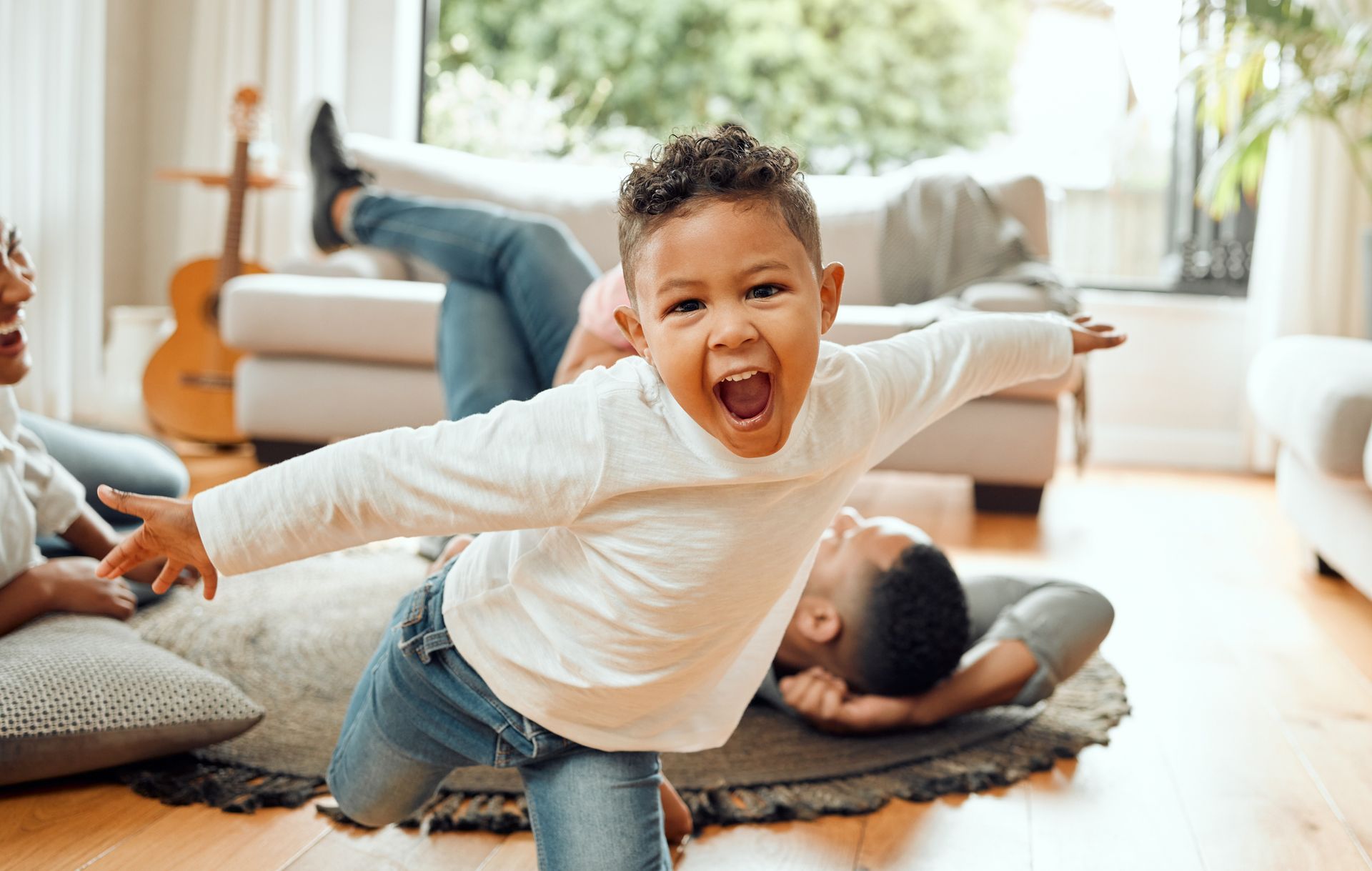Parent-Child Interaction Therapy

Parent-Child Interaction Therapy (PCIT) is an evidence-based intervention for parents of young children (ages 2-7) who are struggling with behavioral problems.
Families who successfully complete PCIT typically report a decrease in frequency and severity of the subsequent behavioral difficulties (such as the dreaded tantrums, defiance, aggression, negative attention-seeking behaviors, etc.). They also report improvements in their attachment with the child and in their child's overall functioning (e.g., self-esteem, attention span, compliance, social behavior, behavior in public, etc.).
Our hope is for parents to experience less frustration and enjoy more calmness and confidence in play as well as discipline, to help build and maintain a healthy relationship with your child.
PCIT one of the most effective, evidence-based treatments for children with behavioral difficulties between 2-7 years old. At Behavioral Health Services of Arkansas, we accept most insurances including Medicaid.
PCIT Therapy | Phases of Treatment
PCIT is done across two treatment phases throughout your therapy sessions.
In the first phase of treatment,
our child therapists focuses on establishing warmth in your relationship with your child as you learn and apply skills that are proven to help your child feel calm and secure in their relationships with you, as well as feel good about themselves.
The second phase of treatment,
our parent-child counselors
will equip you to manage the most challenging of your child's behaviors while remaining confident, calm, and consistent in your approach to discipline. In this phase, you will learn well-supported strategies to help your child accept your boundaries, comply with your directions, respect house rules, and demonstrate appropriate behavior in public.

PCIT Therapy | FAQ
-
Is PCIT right for your child?
It's always a good idea to ask our Pediatric Therapy team about the right mode of therapy for you, but in general PCIT is a good fit for families with kids who are experiencing:
- Frequent temper tantrums
- Defiance - refusing to follow directions
- Verbal and/or physical aggression
- Destruction of toys and/or family belongings
- Backtalk or sassing adults
- Whining or crying for no apparent reason
- Constantly seeking attention
- Hyperactivity
- Interrupting others
- Short attention span
- Difficulty with behaviors at school, preschool, and/or daycare
-
Is PCIT right for you?
Parents who benefit most from PCIT with their child typically report:
- Feeling overwhelmed by their child
- Feeling frustrated or angry with their child
- Feeling like their child is out of control
- Feelings of embarrassment, especially in public places
- Feeling lost because current behavior management strategies are not working
- A desire to learn skills or tools to deal with behavior challenges
-
How long does it take to complete?
The average length of treatment typically varies between 12 and 20 sessions.
Treatment length is variable based on each family's specific needs. Some families complete treatment in fewer than 12 sessions, while ther families take more than 20 sessions to find success.
The length of treatment is likely based on the following factors:
- Family's regular attendance to treatment
- The extent that caregivers engage in quality homework practice in between sessions
- The rate that caregivers display mastery of PCIT skills in session
- The intensity of the child's behaviors at the start of treatment
- The rate at which caregivers report reductions in children's behavior problems
- The extent that the child has other emotional or developmental concerns
- The fulfillment of a specific treatment or case plan if referred by child protective services
-
How do you know if it was successful?
Treatment is considered complete and successful when you have mastered both sets of skills (from phases one and two) and rate your child's behavior within normal limits on a behavior rating scale.
For more info on the 2 phases of therapy, click here.
PCIT Therapy Benefits | Child Behavioral Counseling | Little Rock, AR
Remember that during the first phase of PCIT (Child-Directed Interaction), our child behavioral counselor will encourage your child to lead a play activity while you, their caregiver, observe.
Parents frequently report benefits during the first phase of PCIT that include:
- Increased feelings of security, safety, and attachment with caregiver(s)
- Increased attention span
- Increased self-esteem
- Increased pro-social behaviors (sharing, taking turns)
- Decreased frequency, severity, and/or duration of tantrums
- Decreased hyperactivity
- Decreased negative attention-seeking behaviors (whining, bossiness)
- Decreased caregiver frustration
Remember that during the second phase of PCIT (Parent-Directed Interaction), caregivers learn how to deliver clear, direct commands to reward child compliance, and utilize effective strategies for child noncompliance.
Parents frequently report benefits during the second phase of PCIT that include:
- Increased compliance with caregiver requests
- Decreased frequency, severity, and/or duration of aggressive behavior
- Decreased frequency of destructive behavior
- Improved behavior at home, and in public
- Increased caregiver confidence
- Decreased caregiver stress
Clinic Location
10 Corporate Hill Drive, Suite 330
Little Rock, AR 72205
(Arkansas Medical Society Building)
Business Hours
- Mon - Thu
- -
- Friday
- -
- Sat - Sun
- Closed
2024 © Behavioral Health Services of Arkansas • All Rights Reserved
Therapy in Little Rock, Maumelle, North Little Rock, Sherwood, Mayflower, Conway, Benton, Bryant, Central Arkansas
Behavioral Health Services of Arkansas and Youth Home, Inc. are accredited by The Joint Commission, formerly the Joint Commission on Accreditation of Healthcare Organizations (JCAHO). The Joint Commission is available to provide assistance with treatment related concerns if other avenues have been attempted and unsuccessful. Youth Home, Inc. is required to provide this information to clients and their families/guardians. Office of Quality Monitoring | Phone: 1 (800) 994-6610 | Email: complaint@jointcommission.org



